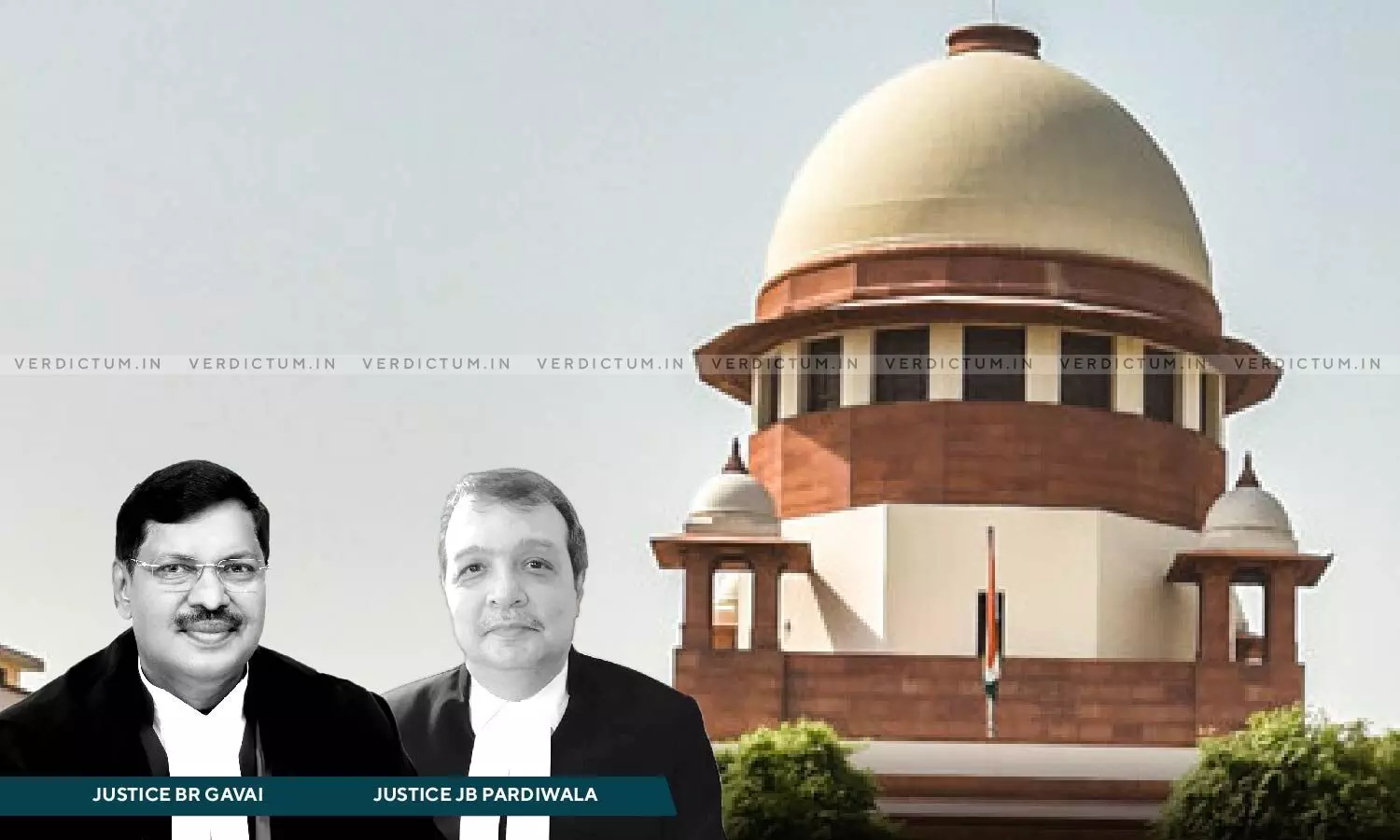
Dacoity Case: Criminal Antecedents Of Accused Cannot Be Sole Consideration To Decline To Quash Criminal Proceedings- SC
 |
|The Supreme Court in a dacoity case has held that when it comes to quashing of the FIR or criminal proceedings, the criminal antecedents of the accused cannot be the sole consideration to decline to quash the criminal proceedings.
The Court was deciding an appeal filed by two accused persons challenging the order of the Allahabad High Court relating to the offences punishable under Sections 395, 504, 506, and 323 of the Indian Penal Code (IPC).
The two-Judge Bench comprising Justice B.R. Gavai and Justice J.B. Pardiwala observed, “… when it comes to quashing of the FIR or criminal proceedings, the criminal antecedents of the accused cannot be the sole consideration to decline to quash the criminal proceedings. An accused has a legitimate right to say before the Court that howsoever bad his antecedents may be, still if the FIR fails to disclose commission of any offence or his case falls within one of the parameters as laid down by this Court in the case of Bhajan Lal (supra), then the Court should not decline to quash the criminal case only on the ground that the accused is a history sheeter.”
The Bench said that an initiation of prosecution has adverse and harsh consequences for the persons named as accused.
Senior Advocate Siddhartha Dave appeared on behalf of the accused/appellants while Additional Advocate General Garima Prasad appeared on behalf of the State.
Factual Background -
The first informant was a resident of a village and his name was recorded as a tenure holder of an agricultural land situated at District Saharanpur. He alleged that the appellants along with few other co-accused were putting forward wrong claim of being the owners of the land. It was his case that sometime in the year 2021, he along with his brother had visited the house of the second accused to request him not to interfere with their lawful possession and ownership of the land in question and at that point of time, the appellants and other co-accused hurled abuses to the first informant and his brother.
It was alleged that the accused persons thereafter assaulted them with hands and fists and on the point of a gun forcibly took away Rs. 2 Lakh from the pocket of the first informant. The accused persons were alleged to have forcibly obtained signatures of the first informant and his brother on a plain stamp paper. An FIR was filed in 2022 and no plausible explanation was offered by the first informant as to why there was inordinate delay in lodging the FIR. The appellants went before the High Court praying for quashing the FIR but the same was declined. The appellants being aggrieved and dissatisfied with the same, therefore, approached the Apex Court.
The Supreme Court after hearing the contentions of the counsel noted, “At this stage, we would like to observe something important. Whenever an accused comes before the Court invoking either the inherent powers under Section 482 of the Code of Criminal Procedure (CrPC) or extraordinary jurisdiction under Article 226 of the Constitution to get the FIR or the criminal proceedings quashed essentially on the ground that such proceedings are manifestly frivolous or vexatious or instituted with the ulterior motive for wreaking vengeance, then in such circumstances the Court owes a duty to look into the FIR with care and a little more closely.”
The Court said that it will not be just enough to look into the averments made in the FIR/complaint alone for the purpose of ascertaining whether the necessary ingredients to constitute the alleged offence are disclosed or not.
“In frivolous or vexatious proceedings, the Court owes a duty to look into many other attending circumstances emerging from the record of the case over and above the averments and, if need be, with due care and circumspection try to read in between the lines”, added the Court.
The Court clarified that delay in the registration of the FIR, by itself, cannot be a ground for quashing of the FIR, however, delay with other attending circumstances emerging from the record of the case rendering the entire case put up by the prosecution inherently improbable, may at times become a good ground to quash the FIR and consequential proceedings.
“If the FIR, like the one in the case on hand, is lodged after a period of more than one year without disclosing the date and time of the alleged incident and further without any plausible and convincing explanation for such delay, then how is the accused expected to defend himself in the trial”, held the Court.
The Court was, hence, convinced with the fact that the continuation of the criminal case will be nothing but abuse of the process of the law.
Accordingly, the Apex Court allowed the appeal, set aside the order of the High Court, and quashed the criminal proceedings against the accused.
Cause Title- Mohammad Wajid & Anr. v. State of U.P. & Ors. (Neutral Citation: 2023 INSC 683)